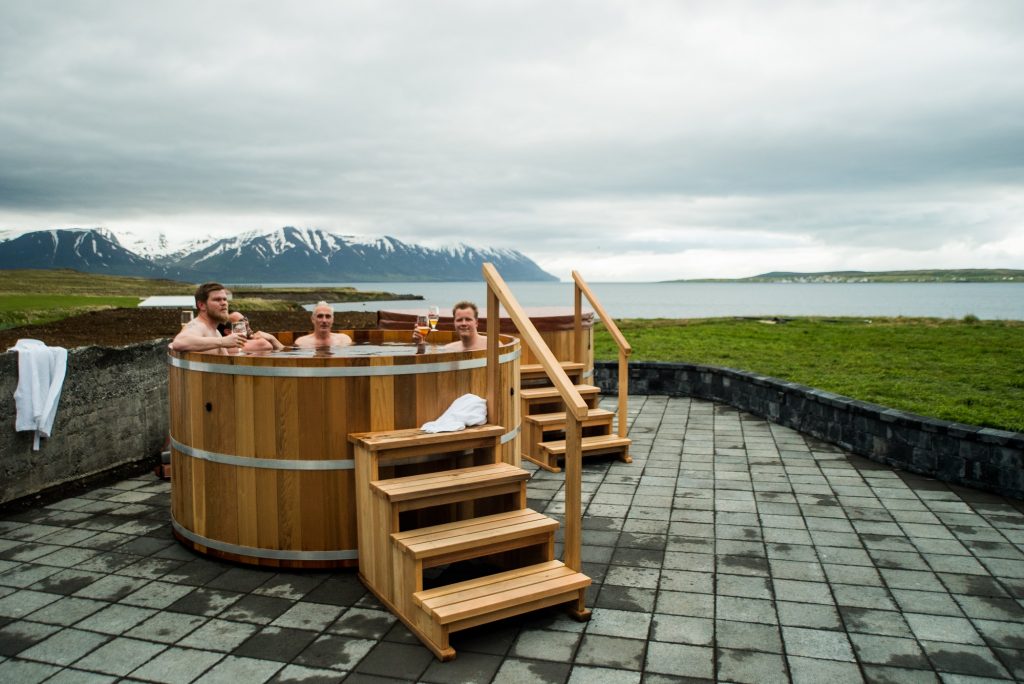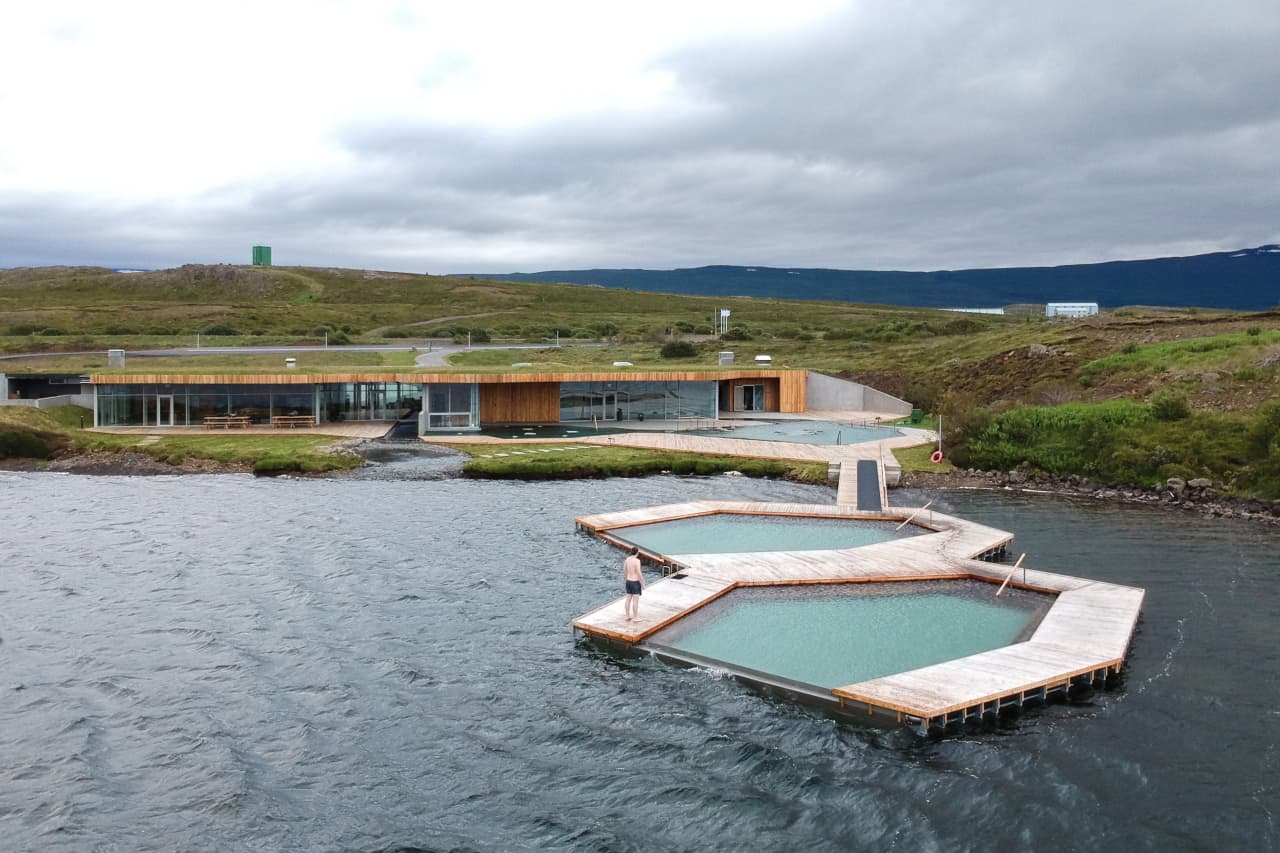Best of the spas
The long winters here make it essential for a warm pick-me-up, and Iceland does this in the form of pools! The water is naturally heated under the ground by volcanic activity, and pumped up to the ground. Most Icelandic towns have a local one, but here are some we think stand out.
 Dalvík
Dalvík
Just down the road from Dalvik is the Kaldi Brewery, which is also home to a spa where you can bathe in beer, while drinking beer! The beer is allegedly great for hair growth and the hops have an anti-inflammatory effect that relaxes the muscles. They also have outdoor tubs with a great view over the fjord, and a relaxation rooftop to warm up on.
Dalur
Dalur is a couple of minutes walk from the biggest pool in Iceland, Laugardalslaug. While not ‘instagramable’ like the Blue Lagoon and other pools (in fact, you aren’t allowed to bring phones in the pool), it is a whole lot cheaper and a lot more authentic- this is where Icelanders spend their free time. With slides, two Olympic sized swimming pools and a variety of hot tubs, this pool is perfect for families or those who want to kick back in a hot tub.
Seyðisfjörður
Seyðisfjördur has its own small pool in town, but a half an hour drive away is Vök baths- the largest spa in east Iceland. What makes Vök unique is that it floats on top of Lake Urriðavatn, making for beautiful sights over the water. The cold tunnel that leads to the baths makes the hot water all the more satisfying, and unlike other pools the water has no sulphur, meaning it doesn’t have that ‘eggy’ smell that some people find annoying. The Tea bar is also a great feature, where you can blend your own herbal tea made from plants found in the area.
Eyrarbakki
Eyrarbakki is close to the Golden Circle, with its central town Laugarvatn. The area is known for it’s geothermal activity, so they built a spa overlooking the lake. Fontana has various hot tubs and three steam rooms- and for the brave, you can also take a dip in the freezing lake. After, you can take a tour of the traditional ‘bakery’ where they bake bread in hot sand from the lake, and eat it with local butter and bread.